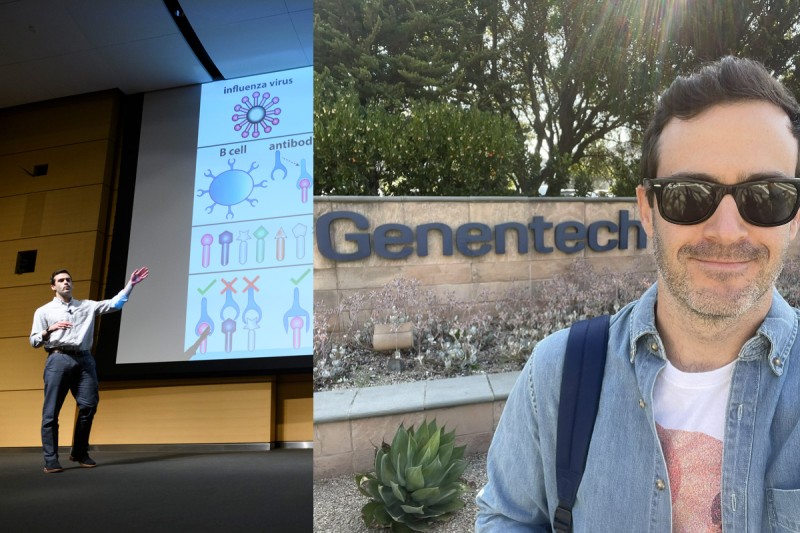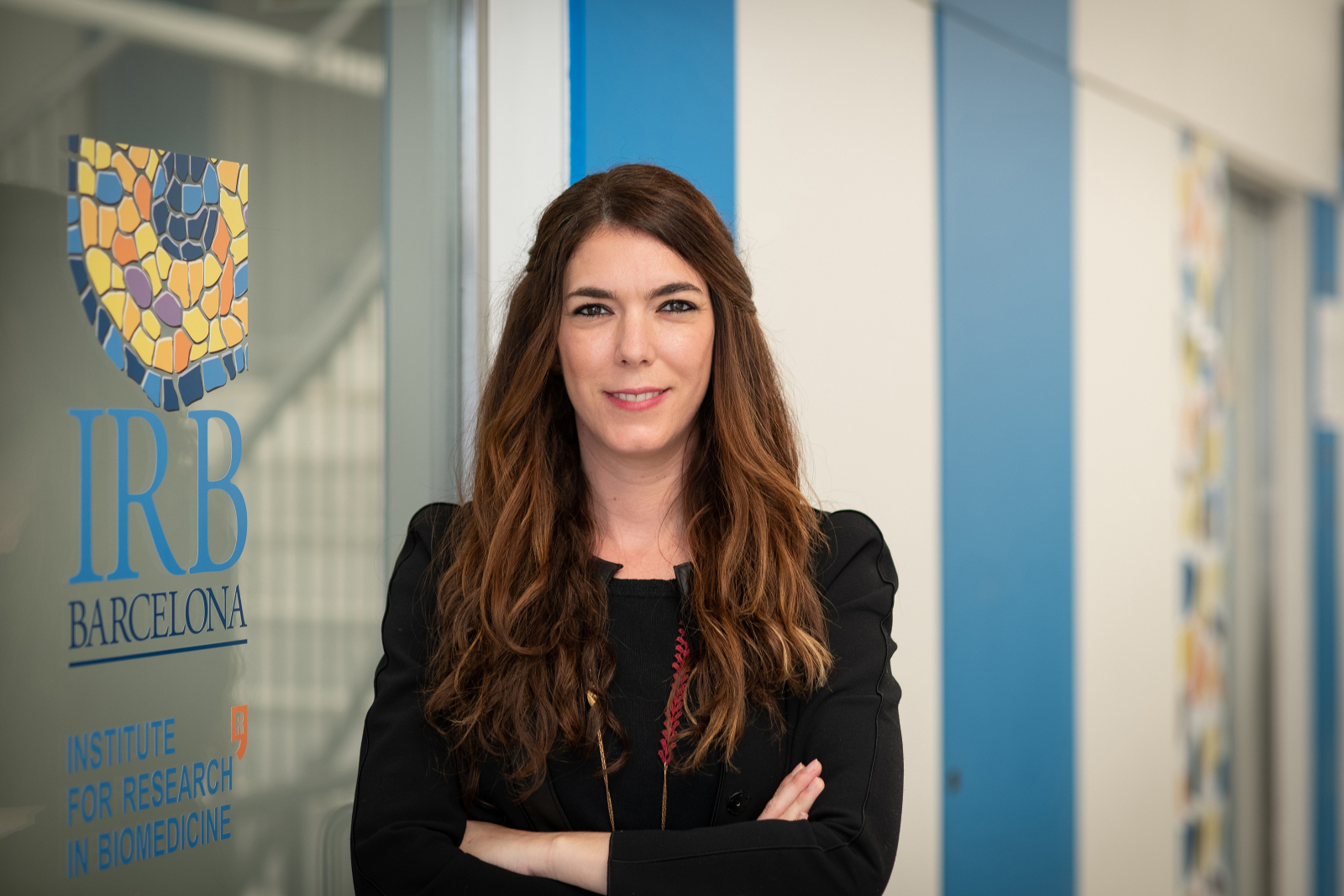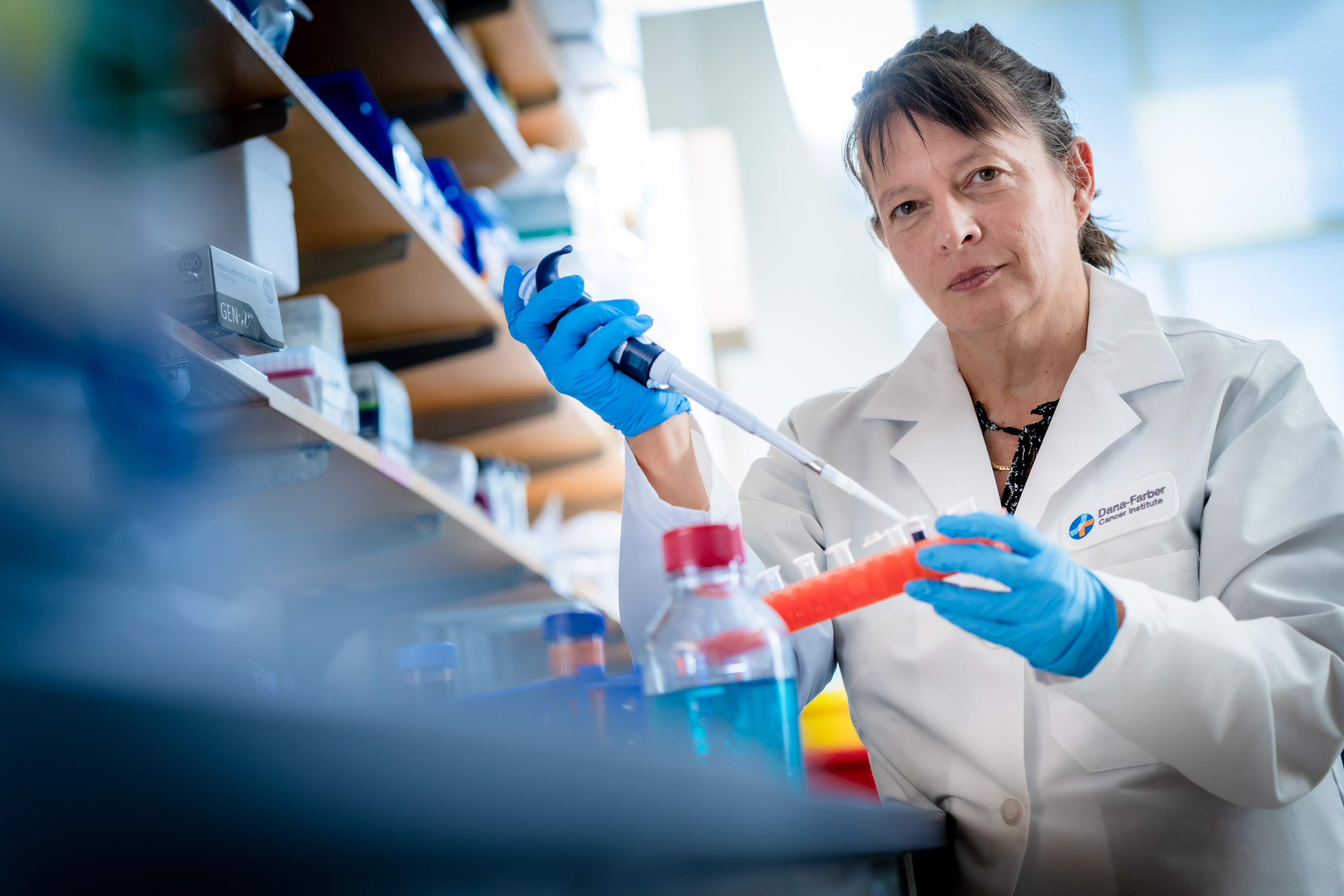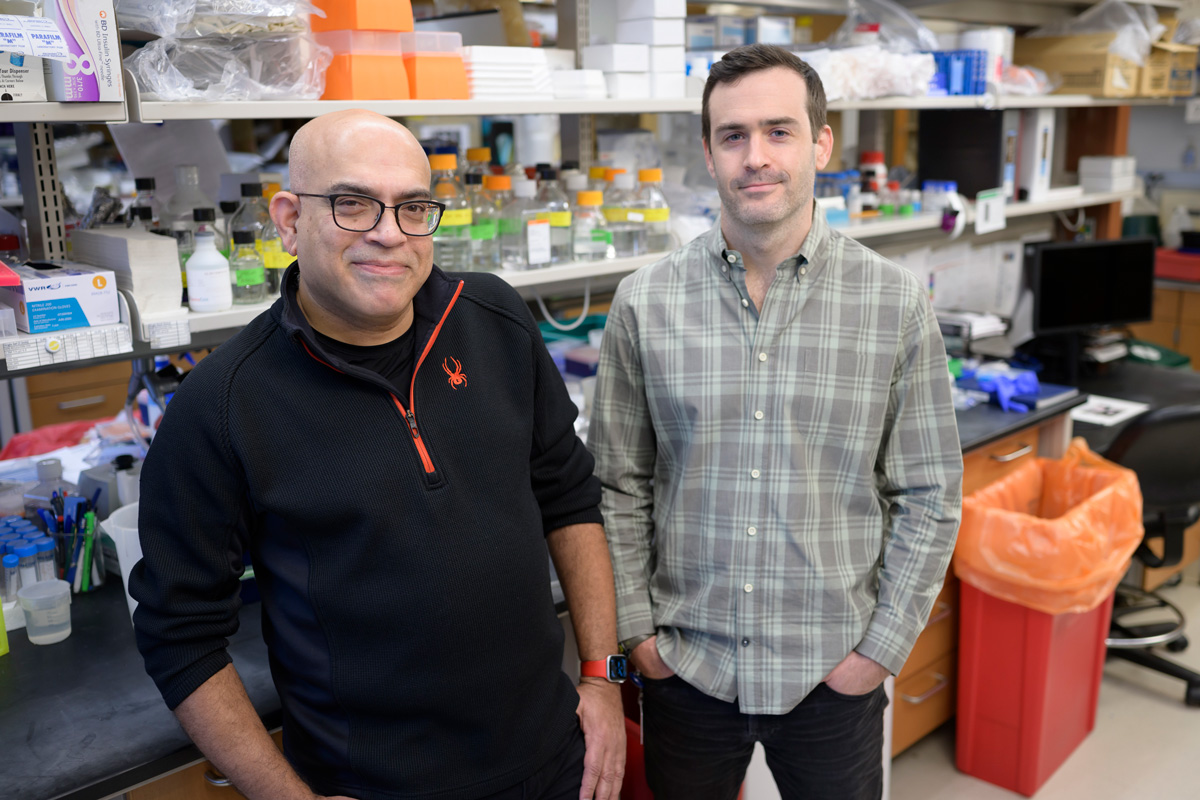
When Direna Alonso-Curbelo, PhD, was a graduate student in Madrid, she had the opportunity to visit Memorial Sloan Kettering Cancer Center (MSK) for a summer-long internship. That gave her a taste of what it was like to live and breathe science at one of the world’s premier research institutions.
“I spent time going to seminars and talking about science, going to happy hours and talking about science — and also exploring the great art and music that New York City has to offer,” she recalls. “I knew after that experience that I wanted to return to MSK.”
And indeed she did return, for her postdoctoral fellowship, which she spent studying how cellular plasticity contributes to cancer and cellular senescence in the lab of Scott Lowe, PhD, Chair of the Cancer Biology and Genetics Program in the Sloan Kettering Institute — a hub for basic and translational research within MSK. She finished up her postdoctoral fellowship in 2021.
Now a faculty member herself at the Institute for Research in Biomedicine (IRB Barcelona) in Spain, Dr. Alonso-Curbelo is able to see just how consequential those early choices were for her subsequent career path.
“Dr. Lowe’s lab represented this perfect balance between a fast-paced, competitive place where you can pursue impactful science and a place where you are able to develop yourself with freedom,” she says. That potent combination set her up for a successful job search and the chance to return as a scientist to her home country of Spain.
But it wasn’t just the technical skills she learned in the lab. Dr. Alonso-Curbelo also credits the “soft skills” training she gained from the dynamic lab environment that Dr. Lowe fosters and through the efforts of MSK’s Office of Scientific Education and Training.
“Especially if you want to run a lab, you have to have other qualities beyond being able to publish papers,” she says. “There’s the human side, learning how to network, engage with peers across many disciplines, communicate with lay audiences, and develop proactive leadership. I was very surprised by all the collateral training you get in this area at MSK.” She singles out Ushma Neill, PhD, MSK’s VP of Scientific Education and Training, and her dedicated team for praise on this score.
“What young scientists learn at the bench is just one part of the equation,” Dr. Neill says. “We want to develop well-rounded researchers.”

The Importance of Environment
That recognition of the importance of supportive environments for successful outcomes finds expression in Dr. Alonso-Curbelo’s scientific research. She is interested in understanding how cues from the local environment around genetically mutated cells influence whether those cells develop into cancer or not. And she’s finding that it depends on a complex conversation between the mutated cells and their surroundings, including influences like inflammation.
“You could be a genetically pristine cell but in a damaged environment and become screwed up,” Dr. Alonso-Curbelo says. “Or you could be a genetically messed-up cell, but if you’re in a good environment, you will be OK.”
In a paper she published in Nature in 2021 as a postdoc in the Lowe Lab, Dr. Alonso-Curbelo showed how this interplay between genes and environment is especially important to reprogram cells’ identity and ignite the development of pancreatic cancer, one of the deadliest forms of cancer and the hardest to treat. Today, as a group leader at her research institution in Barcelona, she is focused on understanding “the who, the how, and the when of the inflammatory response” — not just in pancreatic cancer but in ageing and inflammatory conditions modulating cancer risk, too.
“We want to understand the good and the bad side of inflammation so we can block its tumor-promoting effects and reprogram it to enhance anti-tumor immunity,” she says. In continuing work published in Science and Cancer Discovery this year, Dr. Alonso-Curbelo and colleagues show just how critical these two-way conversations between mutant cells and their immune cell neighbors are.

The important role of environments is a theme that resonates with another MSK alum, Kornelia “Nelly” Polyak, MD, PhD. Dr. Polyak is a professor of medicine at Harvard Medical School and a principal investigator at the Dana-Farber Cancer Institute, where she is focused on understanding why a preinvasive early-stage breast tumor called ductal carcinoma in situ (DCIS) sometimes progresses to invasive breast cancer and sometimes does not.
Several years ago, her lab published an influential paper showing that it’s not just cancer cells that are important for progression; it’s also the tumor microenvironment. They followed up on that finding with the discovery that there is a big change in the immune environment between DCIS and invasive breast cancer, and that escaping from the clutches of the immune system is a critical step for progression.
Dr. Polyak went to medical school and got her MD degree in Hungary, but she was drawn more to research than practicing medicine. “As much as I liked treating patients, I felt frustrated when we didn’t have the tools to really help them,” she says. “And I realized that the only way to get the tools, meaning effective treatment options, is to do research on the disease to understand what’s causing it.
So she came to New York for graduate school back in 1991. An early rotation in the lab of Joan Massagué, PhD — now Director of the Sloan Kettering Institute and Chief Scientific Officer for MSK — convinced her she had found her home.
“This was back when the lab was studying how TGF-beta inhibits the cell cycle,” she says. “It was a super exciting time. I had the feeling that every day we were making discoveries. Some of those discoveries are now in textbooks.”
Though her time at MSK was a while ago, she still detects an influence of Dr. Massagué’s mentorship on the way she runs her own lab.
“I’m very engaged,” she says. “I like to know what everyone is working on. That’s similar to how he was, very involved and engaged. We had a joke back then that every time he traveled somewhere we’d get a call 30 minutes later from the airport: ‘So what new findings do you have?’ ”
Dr. Polyak will be among a host of alumni returning to MSK this month for a symposium celebrating Dr. Massagué’s distinguished career and 70th birthday. Dr. Lowe’s lab also hosted more than 80 alums for a celebration of the lab’s 25th anniversary in September; many trainees have gone on to illustrious careers in both in academia and outside of it.
It Takes a Team
For many young researchers, the opportunity to contribute to unmet needs in treatment is part of the appeal of pursuing a job at a pharmaceutical or biotech company — what insiders called “industry.”
That was certainly the case for Teddy Yewdell, PhD, who started his lab at Genentech, in the San Francisco Bay Area, just about a year ago, in 2022.
“I didn’t think I wanted to go into industry,” Dr. Yewdell says. “I was solely focused on academic careers for most of my training. But then one of my mentors mentioned that a colleague at Genentech was looking for good people, and he recommended that I apply. What quickly became apparent was that Genentech was really unique in terms of its dedication to basic research, and that was really the key for me.”
He also appreciates the sense of teamwork at Genentech. “In academia, you might have a couple key collaborators. Here at Genentech, you’re integrated from top to bottom, from the basic researchers up to the clinicians analyzing clinical trial data. We’re all on the same team and we’re all working toward the same goal — better treatments for patients.”

Dr. Yewdell’s lab is focused on the role of B cells in autoimmune conditions such as inflammatory bowel disease and multiple sclerosis. Historically, he explains, the immunology field thought that T cells were doing all the damage in these conditions. But more recently, they’ve realized B cells are playing a role, too.
Dr. Yewdell recalls his time on the 14th floor of the Zuckerman Research Center at MSK as one of the best experiences of his life.
“Jayanta Chaudhuri’s lab, where I worked, was in between Joe Sun’s lab and Sasha Rudensky’s lab. The collaborative environment we had among those three labs — the uniformly high caliber of scientists I happened to overlap with — was really top-notch. Everyone was not just motivated but collaborative and challenging each other in really good ways, helping out, sharing reagents. It was a really special environment,” he says.
Ultimately, the success of scientific discovery at MSK is measured not just in terms of new biological insights and treatments developed but also in the long-term impact on discovery science around the world as former trainees launch their own careers.
“I like to say that our goal is not just to train future scientists here, but to train future scientific leaders,” Dr. Massagué says.